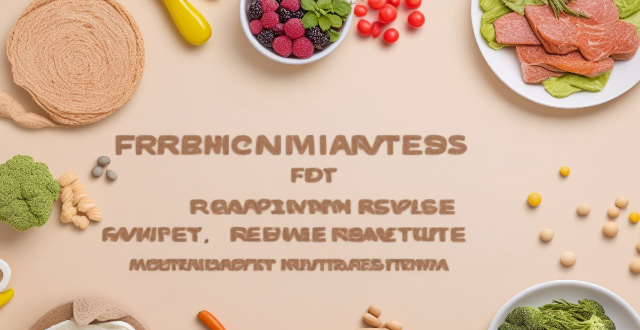The text provides tips on maintaining a balanced diet while following a gluten-free lifestyle, emphasizing the importance of whole foods, gluten-free grains, healthy fats, protein, fiber, limiting processed foods, and staying hydrated. It suggests seeking professional advice if needed.

How to Maintain a Balanced Diet While Following a Gluten-Free Lifestyle
Following a gluten-free diet can be challenging, but it's essential to ensure that you are still getting all the necessary nutrients your body needs. Here are some tips on how to maintain a balanced diet while following a gluten-free lifestyle:
1. Focus on Whole Foods
Eating whole foods is crucial for maintaining a balanced diet. These foods are nutrient-dense and provide your body with the vitamins, minerals, and fiber it needs to function correctly. Some examples of whole foods include fruits, vegetables, lean proteins, nuts, seeds, and legumes.
2. Incorporate Gluten-Free Grains
While wheat, barley, and rye are off-limits, there are plenty of gluten-free grains that you can incorporate into your diet. These include quinoa, rice, corn, millet, buckwheat, and oats (make sure they're certified gluten-free). These grains provide carbohydrates, fiber, and essential nutrients like B vitamins and iron.
3. Choose Healthy Fats
Healthy fats are an essential part of a balanced diet. They help keep you full and provide energy. Some good sources of healthy fats include avocados, olive oil, coconut oil, nuts, and seeds.
4. Get Enough Protein
Protein is vital for building and repairing tissues in your body. It's also essential for keeping you full and satisfied. Some good sources of protein include lean meats, fish, eggs, dairy products (if you can tolerate them), beans, lentils, and tofu.
5. Don't Forget About Fiber
Fiber is essential for digestive health and can help keep you full between meals. Good sources of fiber include fruits, vegetables, whole grains, nuts, seeds, and legumes.
6. Limit Processed Foods
While there are many gluten-free processed foods available, it's best to limit them as much as possible. These foods are often high in sugar, salt, and unhealthy fats. Instead, focus on eating whole foods as much as possible.
7. Stay Hydrated
Drinking enough water is essential for overall health. Aim to drink at least eight glasses of water per day. You can also get fluids from other sources like herbal teas or fruit juices (in moderation).
By following these tips, you can maintain a balanced diet while following a gluten-free lifestyle. Remember to listen to your body and make adjustments as needed. If you have any concerns about your diet or nutrition, consult with a registered dietitian or healthcare professional.